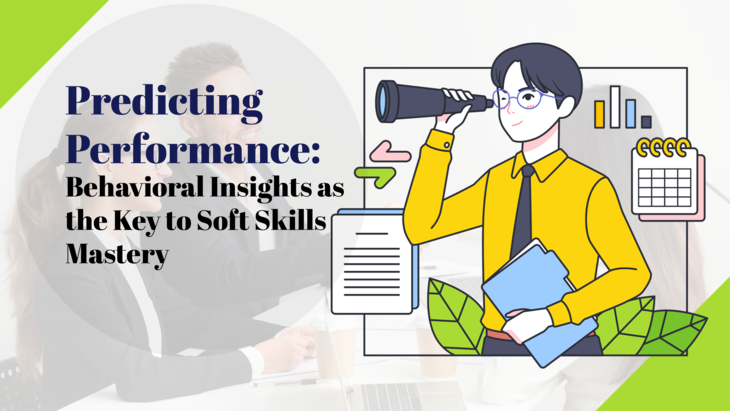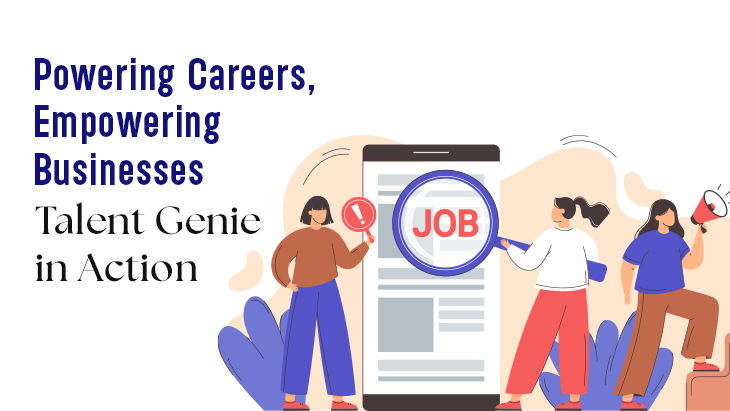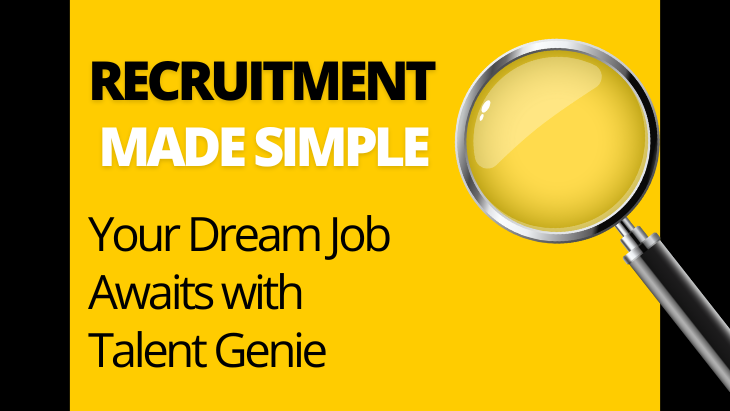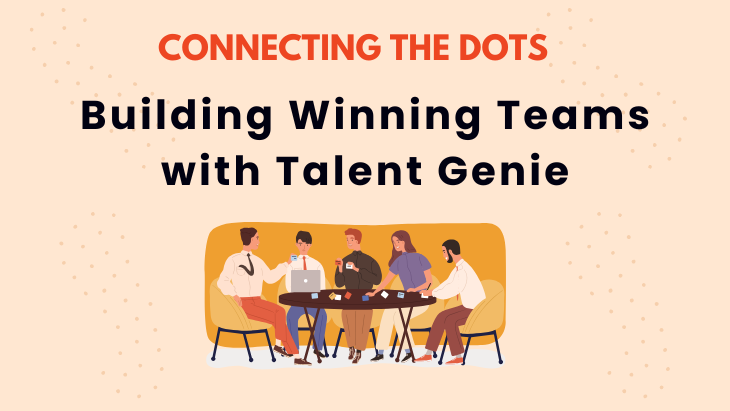In the fast-developing world of recruitment, technical know-how and hard skills vie for centre stage. Less noticed is an equally important component of job success soft skills. Essentially, these are personal attributes, behavioral traits, and interpersonal skills that enable individuals to succeed within collaborative environments with AI Job Portal For Seamless Recruitment. Given that businesses look for applicants who can easily fit into teams, communicate effectively, and answer challenges, the infusion of behavioral insights has become cardinal in ascertaining performance. With the integration of AI job portals into recruitment, never have soft skills been identified and mastered efficiently.
Recruitment Landscape:
Changes are what the development of AI and ML has brought to the recruitment process. It's no longer just about scanning resumes, interviewing, and reviewing references in order to bring on board the best of the talented workforce. Innovative technologies now allow recruiters to focus more on the holistic understanding of candidates. Through AI-driven platforms, businesses are now beginning to take a look beyond academic qualifications and professional experience, which even provide insights into how a candidate's behaviour and soft skills would align with the job role.
Assessments, AI algorithms, and data analytics reveal which behavioural aspects could best impact a candidate's performance in a specific role or setting. These can be associated with possible benefits of emotional intelligence, problem-solving, effective communication, and teaming that can predict the candidates' potential future performance.
Smoothening Recruitment through Rising AI Job Portals
Indeed, AI job portals have thus become essential tools for modern-day recruiters. Beyond making hiring processes easier and faster and potentially reducing the subjective element, these portals automatically perform a number of other repetitive tasks, including sourcing candidates, resume screening, and interview scheduling. Far more important, though, is that impact on jobs.
One of the most significant aspects of such portals is that they can give behavioral insights. With the help of AI and data analytics, these portals measure the candidate's past performance, personality traits, and soft skills, thereby predicting how well he or she would fit into a given team or company culture.
Predictions about a candidate's future behavior are now possible for AI-powered recruitment systems analyzing vast amounts of data, essentially providing a roadmap to the potential success.
More important, when these AI systems are set to emphasize mastering soft skills, they ensure that one not only acquires great technical skills but also how one relates with others, how one manages stress, and how one adapts in a changing environment. Leveling the power of AI and behavioral insight will help recruiters make informed recruitment decisions, thus making sure that they hire not only those who are most qualified but also suit the culture at the place of work.
Importance of Soft Skills in the Workplace
Soft skills are increasingly important as businesses try to navigate the intricate complexities of modern worlds. When everything that used to be technical is automated by AI and handled behind the scenes, a human aspect of communication, empathy, leadership, and adaptability can sometimes become critical in the long term.
Some of the primary soft skills that behavioral insights may predict include:
Communication Skills: Strong communication skills are essential in every profession. It encompasses all the verbal and non-verbal interaction skills, listening skills, interpreting responses, and giving effective expression to ideas. An AI platform can analyze a candidate's communication style while critically monitoring written and spoken patterns of language, the tone, and even the non-verbal video interview signals.
Emotional Quotient: EQ refers to an individual's ability to recognize, understand, anticipate, use, and manage the emotions of themselves and others in achieving social effectivity. A higher EQ is correlated with good teamwork, proper conflict resolution, and a good leader. AI-driven assessment can look into emotional responses during an interview and, thus, give insight into the candidate's emotional quotient.
Problem-Solving Ability: The ability to solve complex problems in creative and efficient ways is everywhere an indicator of success in most jobs. Insigths about behavioral, acquired from simulations, games, or case studies, will offer good visibility to the recruiter regarding how a candidate thinks his way through complex problems.
Teamwork and Collaboration: The talent requirement for any organization is to work effectively with others. AI-based portals for jobs assess the collaboration abilities of the candidate by understanding behavior forms in group assessments, work history, and even social interactions on professional platforms such as LinkedIn.
Adaptability and Resilience: The workplace of the future will be dynamic without any doubt. Adaptation to change is therefore very important. Insights in behavior, which can be derived from past work experiences, a personality assessment, and AI-driven simulations, will predict the prospect of readjustment by the candidate in new roles, industries, or challenges.
Predicting Future Success Through Behavioral Insights
Beyond merely assessing the actual record of a candidate, behavioral insights predict how someone is likely to act in any given situation, which gives a much more holistic view of who they may be tomorrow. For instance, data analysis on how a candidate performed in previous roles, managed diverse teams, or approached stressful situations can help AI systems estimate how well they are likely to do in that role for which they are applying.
It becomes extremely valuable to recruiters when the prediction is possible. Instead of relying only on interviews, which may just be subjective, or perhaps resumes that don't even expose everything, behavioral insights provide objective data to complement decision-making in recruiting, especially for positions hiring for leadership or those that require emphatic attributes for competencies.
AI job portals also enable employers to monitor and analyze the trend of their recruitment decisions over time. With performance data as well as feedback, recruiters can continually refine their knowledge regarding which soft skills are most indicative of success within a specific role. Feedback offers a strong pathway to mastering the science of hiring for soft skills.
Behavioral Evaluations: The Heart of AI Job Portals
Assessments of behavior are a core feature in AI-led recruitment platforms. That is to say, through the application of various forms of AI, their personality, communication styles, and behavior under different conditions are analyzed. Insights from these assessments can predict the real-world performance of candidates.
Behavioral tests may be modified according to the nature of the job, the industry, or the company culture. A sales professional might seek an employee with effective communication and persuasive ability. In a technical job, on the other hand, one would seek someone skilled in problem-solving and analytical thinking skills. Based on such tailored requirements, AI-based job portals can tailor their assessment to what matters in the real world the cases of candidates seeking an evaluation.
Conclusion About AI Recruiting: Future of Recruitment with AI in Soft Skill Mastery
The role of AI in recruitment will only grow further as technology continues to advance. Forecasting future performance based on behavioral insight is a new frontier in hiring and one step that allows companies to be more intelligent and data-driven. Focusing on mastery of soft skills allows recruiters to be certain that they are hiring individuals who, besides technical expertise necessary for the task, can also be relied upon for interpersonal and emotional skills that assure success in the long term.
In future sophisticated AI job portals, more complex behavioral assessments and predictive analytics are expected to help candidates improve on their soft skills through more advanced personalized learning tools. This means a smoother recruitment process and successful hiring for both parties.
Ultimately, the joining of behavioral insight with AI technology introduces a new generation to recruitment. With companies placing more emphasis on soft skills than ever, the AI-facilitated platform will be invaluable in identifying, incubating, and perfecting the necessary qualities that guarantee businesses are well endowed with the relevant talents to succeed in an increasingly unpredictable world.
Conclusion:
The use of AI-driven job portals and behavioural insights can well become the perfect powerhouse for predicting performances and training soft skills. As business qualities such as emotional intelligence, communication, and adaptability are increasingly made a top priority, companies need data-driven insights from AI job portals to find the right candidate with Talent Genie. With these innovations, companies will be able to construct strong, collaborative teams and not let any form of competition prevail over a long-term course within the modern workplace.








Leave a reply